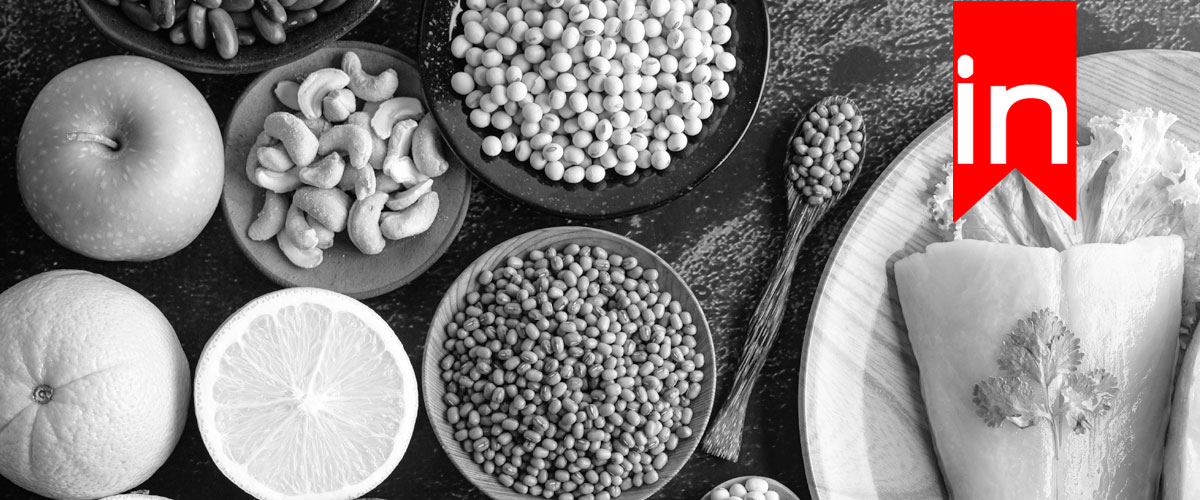About 1 in 3 Canadians develop shingles in their lifetime, according to the Government of Canada. The number of people infected with singles, also known as herpes zoster (HZ), increases sharply after 50 years. Immunize Canada reports that the number of Canadians diagnosed with shingles has been increasing steadily.
Shingles isn’t life-threatening. But it can be very painful. In most cases, the infection presents symptoms for about three weeks. Afterwards, the infection is rarely seen again in the same individual.
What are Shingles?
Shingles, also referred to as herpes zoster, is a viral infection caused by the varicella-zoster virus, which is the same virus responsible for causing chickenpox. Once a person contracts chickenpox, the varicella-zoster virus, can remain inactive (dormant) in the nervous system for an extended period. The virus can reactivate later in life, often in people who have a weakened immune systems due to age, stress, certain medications, or other medical conditions. It is not entirely clear why the virus reactivates in some individuals, but it is thought that a decline in the immune system’s ability to suppress the virus may play a role. When the varicella-zoster virus reactivates, it is known as herpes zoster.
Shingles infection typically causes the following symptoms, though they can vary in each person:
- Pain, burning, numbness or tingling, which usually occurs on one side of the face or body
- A red rash that develops into fluid-filled blisters (also known as the “shingles rash”), that typically occurs on one side of the face or body
- Fatigue, headache, and fever
- Sensitivity to light (photophobia)
- Itching
- Swelling
Symptoms can vary depending on the location of the painful rash and the severity of the infection. Pain and itchiness may persist even after the rash has cleared up. In some cases, shingles can cause complications such as postherpetic neuralgia (PHN), which is a chronic pain that can last for months or even years after the rash has disappeared.
The duration of shingles can vary, but it typically lasts between 2 to 4 weeks. In some cases, it can last longer, up to several months. If you have shingles, it is important to see a healthcare provider for treatment and management of your symptoms.
Treatment options include antiviral medications and pain relievers. Additionally, there is a vaccine available to prevent the development of shingles.
What To Do When You Have Shingles
Along with medications, you can take steps to heal an outbreak more quickly. Shingles is a viral infection, which often weakens the immune system. To help combat the virus, older adults are advised to strengthen their immune systems by exercising regularly and eating healthy foods. It is recommended that they eat foods that are good for shingles and avoid food that may cause the body’s immune system to work at a slower pace.
In addition to medical treatment, there are several non-medical ways of managing the symptoms of shingles. These include:
- Keeping the rash clean and dry: Avoid scratching the rash and keep the rash area clean and dry, and wear loose-fitting clothing that won’t irritate or rub against the rash.
- Cold compresses: A cold compress, such as a damp cloth that has been chilled in the refrigerator, can help alleviate the pain and itching caused by shingles.
- Oatmeal baths: Taking oatmeal baths can help calm the irritated nerves of shingles. Add oatmeal to a lukewarm bath and soak for about 15 minutes.
- Relaxation techniques: Stress can worsen shingles symptoms. Although you may be stressed due to shingles, practice relaxation techniques to help calm your body and mind. Such techniques include yoga, deep breathing, or meditation.
- Getting enough rest: Rest can help your body heal faster while fatigue can worsen the symptoms of shingles. Getting plenty of sleep and avoiding too much strenuous activity are important for recovery.
- Good hygiene: Keep the blisters covered and avoid touching or scratching them to avoid transmitting the virus to other people.
Foods To Avoid When Having Shingles
A shingles diet ensures a healthy immune system. Older adults should exclude these foods in their meal plans to reduce the length of time their shingles outbreak lasts.
High Glycemic Carbohydrates
High glycemic carbohydrates, also knowns as refined carbohydrates, are foods that are quickly digested and absorbed into the bloodstream. They cause a rapid rise in blood glucose levels (blood sugar levels). This can lead to hunger cravings and overconsumption of calories because your body is reacting to the influx of sugar. Due to the sharp increase in blood sugar levels, it can also slow down the white blood cells – the antibodies that fight off pathogens in the body. Overall this will weaken the immune system and increases inflammation. Some examples of high glycemic foods include:
- white bread and bagels
- white rice
- white potatoes
- candies and sweets
- cakes and baked goods
- sugary drinks including fruit juices
- sugary cereals
- pasta
- ice cream
Instead of taking refined carbohydrates, older adults should go for complex carbohydrates, which can reduce and limit inflammation. Complex carbohydrates are found in whole grains and other foods that contain dietary fiber, such as vegetables, fruits, beans and legumes. They’re digested more slowly than simple carbohydrates, so they provide a steady source of energy for a longer time period. Complex carbohydrates also tend to keep your blood sugar levels more stable than simple carbs do. Some examples of complex carbohydrates include:
- Whole grains: brown rice, barley, quinoa, oatmeal (steel-cut oats)
- Sweet potato
- Legumes: lentils
- Beans
- Vegetables and Fruits
Arginine Rich Foods
Typically arginine rich foods are a rich source of amino acids that can support the immune system and promote healthy blood circulation. However, while the shingles virus is active in your body, it’s best to limit this amino acid because they are known to reproduce the virus causing it to worsen the shingles condition.
It is not common to have foods that have no arginine amino acids as it is one of the 20 amino acids that are used to build proteins in the body. Most foods that contain protein will also contain some amount of arginine. However, some foods may have very low levels of arginine compared to other amino acids. Higher arginine amino acid is present in some healthy foods like:
- Grains: wheat, corn, barley, oats, and pasta
- Nuts: almonds, cashews, peanuts, macadamia, and hazelnuts
- Seeds: pumpkin, sunflower, sesame, flax, and chia seeds
- Legumes: kidney beans, chickpeas, black-eyed peas, navy beans, and black beans
- Cereals: wheat and corn flakes, most types of muesli and granola
- Fruits: apricot, kiwi, peach, and plum
- Vegetables: bell peppers, artichokes, mushrooms, and okra
- Soy: tofu, tempeh
Seniors should avoid these foods during the shingles outbreak. Also, consult a doctor before using supplements and medications containing L-arginine if you have had shingles. Instead, foods with high lysine amino acids have antiviral effects and can help inhibit the replication the virus by blocking the activity of arginine. Examples of some foods that are high in lysine amino acids but lower in arginine:
- Fruits: avocados, apricots, apples, berries (strawberries, blueberries, raspberries), oranges, bananas, grapes, melons, pineapples, papayas
- Vegetables: broccoli, cauliflower, lettuce, spinach, kale, parsley
- Dairy: milk, cheese, yogurt
- Eggs: Egg whites
- Grains: rice (brown, white, wild), barley, oats, quinoa, bulgur, couscous
- Seeds: amaranth
- Legumes: chickpeas, lentils, navy beans, black beans, kidney beans, green peas
- Fish and seafood: salmon, tuna, halibut, cod
- Meat: beef, pork, chicken, lamb
- Spirulina
Highly processed foods
Highly processed foods are the products that have been altered from the original food. The food is either made or combined with other ingredients and then processed in a way to make it more convenient for consumption. These foods include added sugars such as corn syrup, sugar, soybean oil, monosodium glutamate (MSG) and high fructose corn syrup. They are also full of salt and omega-6 fatty acids. They may weaken the immune system of older adults and cause inflammation. Examples of highly processed foods include:
- Packaged snacks: chips, crackers, and cookies
- Packaged instant foods: instant noodles, ramen
- Pre-made desserts: cakes, pastries, ice cream
- Frozen dinners and microwavable meals
- Canned soups, broths, sauces
- Sugary breakfast cereals
- Meat alternatives
- Processed meats: bacon, hot dogs, deli meats
- Sweetened drinks: soda, energy drinks, sports drinks
- Spreads and oils: margarine, vegetable shortening
- Artificial sweeteners, flavors, colors
Instead seniors should focus on eating unprocessed or minimally processed foods. Generally, these are considered whole foods:
- Fresh fruits: apples, berries, oranges, bananas
- Fresh vegetables: carrots, broccoli, spinach, kale
- Whole grains: brown rice, quinoa, barley, oats, whole wheat
- Nuts: almonds, walnuts, pecans, cashews
- Seeds: chia, flax, pumpkin, sunflower
- Legumes: lentils, black beans, kidney beans, chickpeas
- Meat: chicken, beef, pork, lamb
- Fish: salmon, tuna, cod, halibut
- Eggs
- Dairy products: milk, cheese, yogurt
- Herbs and spices: basil, oregano, ginger, cumin
Saturated Fats
Saturated fats are commonly found in animal products, including meat and dairy products. They are one of the main foods to avoid during shingles outbreak, as they are unhealthy in excess amounts and can even cause heart problems and other health complications.
In almost all cases, you should also remove them from a shingles diet. In their place, older adults should take low-fat or unsaturated foods. Common examples of foods with saturated fats are:
- Meat: particularly red meat such as beef, pork, lamb
- Poultry: chicken and turkey with skin
- Dairy: butter, cream, cheese, whole milk
- Processed meats: bacon, sausages, hot dogs, deli meats
- Oils: coconut oil, palm oil
- Baked goods: pastries, cookies, cakes (especially those made with butter)
- Frozen foods: some frozen pizzas, frozen dinners
Older adults with shingles should focus on eating food with unsaturated fats. They can found in some foods and most oils. There are 2 types of unsaturated fats: monounsaturated fatty acids (MUFA) and polyunsaturated fatty acids (PUFA). Examples of low-fat or unsaturated foods.
Monounsaturated fats (type of fat that is liquid at room temperature and is considered to be a healthy fat) are found in high concentrations in:
- Vegetables and Fruits: avocados, olives
- Oils: olive oil, avocado oil, canola oil, peanut oil
- Seeds: pumpkin seeds, sesame seeds, sunflower seeds
- Nuts: almonds, cashews, hazelnuts, peanuts, pecans
- Spreads: peanut butter, almond butter, hummus
Polyunsaturated fats (type of fat that is solid at room temperature and is considered to be a healthy fat) are found in high concentrations in:
- Oils: soybean oil, corn oil, safflower oil, sunflower oil, flaxseed oil
- Nuts: walnuts, pecans, pine nuts
- Seeds: chia seeds, flaxseeds, hemp seeds
- Fish: salmon, mackerel, herring, sardines, trout
- Soy: tofu, tempeh
- Some types of margarine
Caffeine
Caffeine is a natural stimulant and can cause irregular heartbeat, anxiety and can cause negative effects on sleep. It is best to avoid caffeine products such as coffee, black tea, and colas.
- Coffee
- Tea: green tea, iced tea
- Chocolate
- Energy drinks
- Caffeinated water
Alcohol
Alcohol can interact with many medications, but that is not the only reason to avoid it. Shingles and alcohol are not advisable for seniors because they adversely affect immune system functioning.
Foods with Extreme Temperatures
Foods served too hot or too cold may harm the nervous system. Higher temperatures can stop nerve fibres from working properly. This means that sometimes messages cannot get through to and from the brain. Because of this you may experience fatigue, weakness, or problems with balance or vision.
Consult with your healthcare provider before trying any non-medicated treatment to ensure it is safe and appropriate for you.
Summary
Shingles can infect people of all ages, not just the elderly. However, it is more common among older adults. Easy steps can be taken to remedy the symptoms, such as eating right and staying healthy can provide a better immune system in case of an infection by the shingles virus.
It is not common to find foods that have all those characteristics at the same time, as they are not always compatible with each other. Highly processed foods usually contain high amounts of added sugar, which can contribute to high glycemic carbohydrates, and saturated fats, but not always high arginine.
As a preventative measure, you or your loved one can consider the shingles vaccine, if not already been vaccinated. Zostavax II® and Shingrix® are currently authorized for use Canada. The shingles vaccine can help lower the risk of shingles.
It is always best to consult a doctor before deciding on the best course of treatment.



6 thoughts on “Don’t Eat These Foods If You Have Shingles”
Hello,
Please help with an explanation of why some foods show up as both foods to avoid and foods to consume.
Thank you
Thank you for the article ,it has really helped me to understand shingles, the dos and the don’ts. thank you once again.
Sorry, but there are contradictory foods listed on here. Stating that certain foods you should avoid but also eat more of? Like apricot and black beans. They appear on both lists. Would love for this to be corrected.
Yes, they are contradictory❗️I am making a food list and I see the same nuts & berries on the do and do not eat list❗️I am desperate to find anything that will help me fight this horrific pain❗️Suffering from June 2017 til Feb 2024. Didn’t get the Shingles Shot (my fault).
Hi, I am confused with the foods /fruits do and do not eat for Shingles!! The food you can’t eat is under the food you can eat!!
Very Contradictory!!
Regards Suzzy Elan Govan
Thankyou very much for your advice I really liked it